Baby Skin Rashes Pictures Biography
Source(google.com.pk)Rash: A spotted, pink or red skin eruption that may be accompanied by itching and is caused by disease, contact with an allergen, food ingestion, or drug reaction. Some common baby skin rashes are:
Cradle cap:
You might expect your baby's skin to be flawless, but baby rashes and other skin conditions — such as cradle cap — are common.
Cradle cap appears as thick, yellow, crusty or greasy patches on a baby's scalp. Cradle cap is most common in newborns and usually clears up on its own by age 6 months.
In the meantime, wash your baby's hair with mild baby shampoo and loosen the scales with a small, soft-bristled brush. For stubborn scales, rub petrolatum or a few drops of mineral oil onto your baby's scalp, wait a few minutes, and then brush and shampoo your baby's hair. If cradle cap persists, ask your baby's doctor about other treatment options.
Diaper rash:
A patchwork of bright red skin on your baby's bottom is probably diaper rash, typically caused by prolonged contact with urine or feces.
To treat diaper rash, air out your baby's bottom. Apply a diaper rash cream or ointment at each diaper change. If you use a thick barrier cream, remove only the soiled layer of cream during diaper changes to avoid rubbing and further irritating the skin. Consult your baby's doctor if the rash doesn't improve or begins to blister.
To prevent diaper rash, change your baby's diaper frequently, let your baby go without a diaper for short periods of time, and regularly apply a diaper rash cream or ointment barrier during diaper changes.
Milia:
Many babies are born with milia — tiny white bumps that appear on the nose, chin or cheeks. Most cases of milia disappear on their own within a few weeks. In the meantime, wash your baby's face once a day with water and a mild soap.
Baby acne:
Baby acne appears as red or white bumps on a baby's forehead or cheeks. The condition often develops within the first month after birth, perhaps due to exposure to maternal hormones during pregnancy. Baby acne usually disappears on its own within a few months.
In the meantime, wash your baby's face once a day with water and a mild soap. Consult your baby's doctor if the acne doesn't improve within a few months or you'd like to consider more aggressive treatment.
Heat rash:
Heat rash appears as fine, clear or red spots on your baby's skin. Heat rash is common in babies during hot, humid weather — often a result of overdressing.
Heat rash generally disappears on its own. In the meantime, move the baby to a cooler environment or give the baby a cool bath. To prevent heat rash in hot weather, dress your baby in cool, lightweight clothing. In cold weather, dress your baby in layers so that you can remove items if the temperature rises.
Baby eczema:
Baby eczema is characterized by patches of dry, scaly and itchy skin. Occasionally the patches ooze and crust over.
Many babies outgrow eczema. To treat baby eczema, help your baby avoid extreme temperatures and anything that seems to bother his or her skin. Bathe your baby every second or third day, rather than daily, and dry your baby's skin with gentle pats. Use generous amounts of unscented moisturizing ointment. Consult your baby's doctor if the rash is severe or doesn't improve.
Baby Acne:
Acne neonatorum also called neonatal or baby acne is caused by maternal hormones. The same hormones (estrogens) are involved in causing acne in adolescents. The big difference is that this will resolve on its own within a couple of weeks, and no treatment is needed.
Erythema Toxicum Neonatorum:
Erythema toxicum neonatorum is the most common pustular (fluid-filled) eruption in newborns. More than half of all newborns develop this rash usually within two to three days after birth. Generally, the rash appears on the face or extremities and initially as a red raised eruption. Then they develop into a pustule with a "blotchy" appearance. The cause is unknown, however the lesions fade after a week, and there is no treatment needed. Sometimes this is confused with more serious infections of the skin. If there is fever associated with the eruption, further evaluation is needed.
Birthmarks:
Birthmarks can be found in 5%-10% of all babies. Most of these are common nevi (areas of skin discoloration) and need no further evaluation. Birthmarks are generally divided into three groups: pigmented, vascular, and anatomic. Some birthmarks develop over time, and some are present at birth. Always talk to a pediatrician about any concerns about birthmarks.
Newborn's Dry Skin:
Newborns often have very dry peeling skin in the initial period after birth. This is due to the fact that the infant has existed in a fluid environment for several months, and after birth, the skin cells start to regenerate, which results in the peeling of the old skin cells. There is no need to do anything since this will resolve on its own.
Prickly Heat Skin Irritation:
Prickly heat is also known as miliaria rubra. It is due to a sweat gland dysfunction. The rash appears on the neck, diaper area, armpits, and any skinfolds most likely to be prone to increased sweating. The rash may itch as well. Keep the infant cool (in the summer and winter) and it's likely the baby will avoid this reaction. In most cases, prickly heat resolves within a couple of days, but speak to a pediatrician about other options if it persists.
Baby Yeast Infections:
Oral thrush is caused by a yeast infection in the mouth. It appears on the tongue and gums and is bright red with white plaques (looks like dried milk curds). It is a common infection in infancy and may be brought on by poor oral hygiene, antibiotic usage, or other immune problems. In babies, it is most often associated with either antibiotic usage or poor oral hygiene. The doctor may need to prescribe an antifungal medication such as nystatin (Mycostatin, Nilstat, Nystex).
Baby Sunburn:
Babies don't benefit from a tan! An infant's and child's skin is very sensitive and can easily burn from sun exposure, causing real and even permanent damage. If the baby is going to be outdoors, it is important to avoid direct sunlight. Sunscreen is not recommended for infants under 6 months of age, so use a hat, umbrella, or other protection whenever possible. For infants over 6 months of age, always apply sunscreen as well. If it's suspected that the infant has a sunburn, call the pediatrician for advice.
Baby Skin Rashes Pictures Skin Rashes In Children On Face In Adults On Hands On Arms That Itch In Kids On Dogs On Chest On Neck

Baby Skin Rashes Pictures Skin Rashes In Children On Face In Adults On Hands On Arms That Itch In Kids On Dogs On Chest On Neck
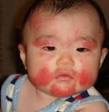
Baby Skin Rashes Pictures Skin Rashes In Children On Face In Adults On Hands On Arms That Itch In Kids On Dogs On Chest On Neck
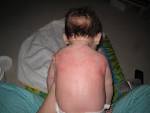
Baby Skin Rashes Pictures Skin Rashes In Children On Face In Adults On Hands On Arms That Itch In Kids On Dogs On Chest On Neck
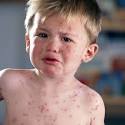
Baby Skin Rashes Pictures Skin Rashes In Children On Face In Adults On Hands On Arms That Itch In Kids On Dogs On Chest On Neck
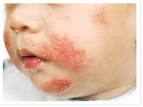
Baby Skin Rashes Pictures Skin Rashes In Children On Face In Adults On Hands On Arms That Itch In Kids On Dogs On Chest On Neck
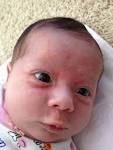
Baby Skin Rashes Pictures Skin Rashes In Children On Face In Adults On Hands On Arms That Itch In Kids On Dogs On Chest On Neck

Baby Skin Rashes Pictures Skin Rashes In Children On Face In Adults On Hands On Arms That Itch In Kids On Dogs On Chest On Neck

Baby Skin Rashes Pictures Skin Rashes In Children On Face In Adults On Hands On Arms That Itch In Kids On Dogs On Chest On Neck
Baby Skin Rashes Pictures Skin Rashes In Children On Face In Adults On Hands On Arms That Itch In Kids On Dogs On Chest On Neck
Baby Skin Rashes Pictures Skin Rashes In Children On Face In Adults On Hands On Arms That Itch In Kids On Dogs On Chest On Neck
Baby Skin Rashes Pictures Skin Rashes In Children On Face In Adults On Hands On Arms That Itch In Kids On Dogs On Chest On Neck
Baby Skin Rashes Pictures Skin Rashes In Children On Face In Adults On Hands On Arms That Itch In Kids On Dogs On Chest On Neck
Baby Skin Rashes Pictures Skin Rashes In Children On Face In Adults On Hands On Arms That Itch In Kids On Dogs On Chest On Neck
Baby Skin Rashes Pictures Skin Rashes In Children On Face In Adults On Hands On Arms That Itch In Kids On Dogs On Chest On Neck
Baby Skin Rashes Pictures Skin Rashes In Children On Face In Adults On Hands On Arms That Itch In Kids On Dogs On Chest On Neck
Baby Skin Rashes Pictures Skin Rashes In Children On Face In Adults On Hands On Arms That Itch In Kids On Dogs On Chest On Neck
Unfortunately there are a lot of AIDS/Herpes denials on Herbal cures still out there. I did research on them after I was tested HIV/Herpes positive I was so worried am I going to die soon. I continue my search again on herbal remedy for Std, then I found lots of testimony on how Dr Itua Herbal Medicine Cured HIV/Aids, Herpes Virus,Copd, Hepatitis,Shingles, Diabetes,Epilepsy,Infertility, On websites sharing their testimonies, which made much more sense to me. All the authors pronounce Dr Itua As a man with Good Heart, I pick interest in their testimonies and I contact him about my situation then he gave me procedure how it works, I proceed after one week he courier his Herbal Medicine to me and instruct me on how to drink it for two weeks to cure. I receive His Herbal Medicine so I drank it for two weeks as I was told then after 2 days I go for a test I found out I was cured from HIV/Aids & Herpes Virus, I pay homage to him 2 months ago to his country to celebrate with him on his African festival which he told me it usually happens every year. I know there are lots of (HIV)/Aids&Herpes Virus denials of Herbal Remedy movement the same few doctors and they represent a very small faction of the community. I could have died because I refused Natural Herbs Cures for so long, but luckily, by the grace of God I am alive to tell my story. Contact Info...Whatsapp Number...+2348149277967,Email...drituaherbalcenter@gmail.com/My Instagram Username...avat5634 Just in case you need someone to talk with.
ReplyDelete